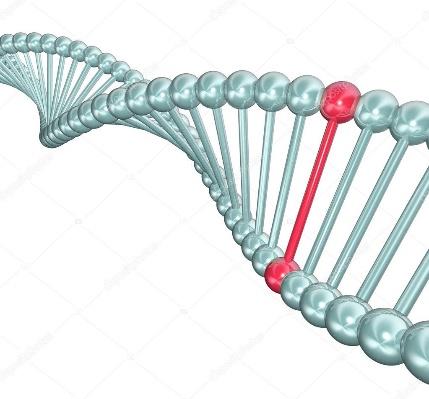Joseph R. Anticaglia MD
Medical Advisory Board
Former President Jimmy Carter was born on October 1, 1924. Few thought this 98 year old would be living today. In 2015 he was diagnosed with melanoma, a deadly form of skin cancer which had spread to his liver and brain.
Mr. Carter decided to seek the advice of doctors and scientists at Winship Cancer Institute of Emory University in Atlanta, Georgia in 2015. Most likely the conversation went along these lines: “Melanoma cells produce a protein called PD — L1 which tricked the body’s immune system into believing they are friendly cells.
The body’s immune system has killer T-cells which are on duty 24/7. They behave like an on/off switch. Once they get the on signal that there are dangerous foreign elements in the body, they go into a seek and destroy mode. Without T-cells, every harmful exposure could be life-threatening. On the outside of these attack cells are a protein called PD-1.
It appears that the melanoma has inactivated the PD-1 protein by turning the switch to the off position. It crippled the killer cells communication system. We need to activate, turn the T-cell switch to the on position, so that the killer cells in your body can attack and destroy the melanoma cells.”
The President agreed to the precise recommendations of the doctors at Emory, which included:
- Stereotactic radiation to treat the small brain tumors
- Surgical removal of the tumor from the liver
- Immunotherapy
What were uncharted waters and his ray of hope, was his decision to go forward in 2015 with the drug pembrolizumab. The idea was that this drug would switch on PD-1 to activate the body’s T-cell immune system and destroy melanoma cells. It worked! A few months ago, Mr. Carter celebrated his 98th birthday. The President benefited from precision medicine, when his team of doctors utilized the latest science regarding immunology, as well as advances in surgical and radiation treatment.
Precision or Personalized Medicine
Precision medicine gathers information about a person’s own genes or proteins to prevent, diagnose or treat disease. In cancer, precision medicine uses specific information about a person’s tumor to help make a diagnosis, plan treatment and follow-up care.
For example, the actress, Angelina Jolie has a family history of breast cancer. She underwent preventive surgery; a prophylactic bilateral mastectomy in 2013 after genetic testing revealed that she carries a mutation in her BRCA1 genes that give her an 87% lifetime risk of developing breast cancer.
Doctors may not mention precision medicine when they discuss your diagnosis, and management. They could talk about DNA, molecular or biomarker testing or genes; but the treatment goal is uncomplicated — to get you well and keep you healthy!
Gene Mutations (Gene Changes)
Genes are pieces of DNA within each cell that function as command centers, instructing each cell to make specific proteins to do a specific job. The genes inside each cell are copied each time a cell divides. A mutation happens when there’s a mistake in the copying process causing changes in the make-up of our genes DNA.

We can inherit copying mistakes, mutations from our parents which make us susceptible, for example, to breast, or colon cancer. But mutations, changes in our genes can occur later in life secondary to poor lifestyle choices such as smoking.
Cancer Diagnosis
Diagnosis is commonly done by examining a tissue sample obtained from a biopsy of the tumor. But a blood sample has also been used to make the diagnosis. Once the tumor is identified, scientists use various techniques (e. g., biomarker or molecular testing, genomic profiling) to identify changes in genes (mutations) and gather information on the growth and spread of the tumor.
Treatment
Armed with better information concerning the make-up and mutations of certain tumors, doctors can implement a targeted treatment program, precise medicine, to benefit patients. Precision medicine doesn’t have the approach that “one size fits all” in treating patients. This personalized approach in managing a person’s problem considers differences in individual’s genes and lifestyles. The goal of precision medicine is to provide the right treatments to as many patients as possible, in the right way and at the right time.
Addendum
The American Cancer Society lists the more common types of cancers where precision medicine is being used to help with treatment:
- Colorectal cancer
- Breast cancer
- Lung cancer
- Certain types of leukemia
- Certain types of lymphoma
- Melanoma
- Esophageal cancer
- Stomach cancer
- Ovarian cancer
- Thyroid cancer
Glossary
Biomarker testing is a way to look for genes, proteins, or other substances that can provide information about cancer.
Designer Medicine — Precision or Personalized Medicine
References
- Karl Gruber; Smoking Smothers Your Genes; Science December22, 2012
- American Cancer Society; Genes and Cancer; August 31, 2022
- American Cancer Society; Biomarker Tests and Cancer Treatment; September 21, 2022
- MedlinePlus; What is Precise Medicine? May 17, 2022
- Heather Collins, MS, et al; Information Needs in the Precision Medicine Era: How Genetics Home Reference Can Help; Interact J Med Res. 2016 Apr-Jun;
This article is intended solely as a learning experience. Please consult your physician for diagnostic and treatment options.

